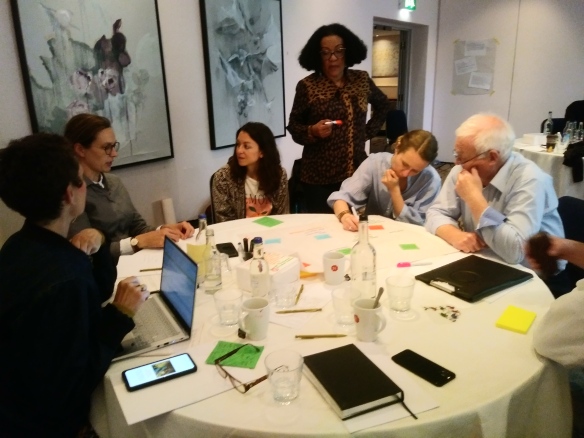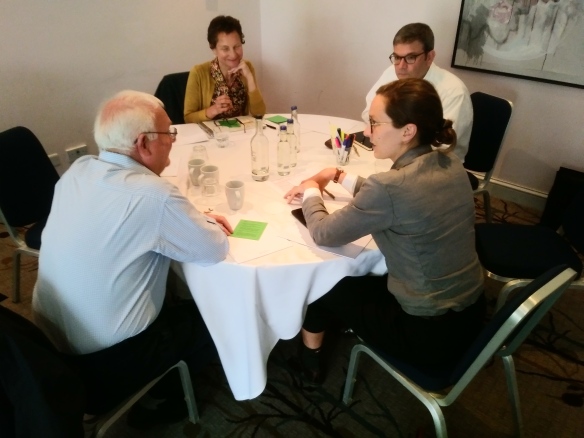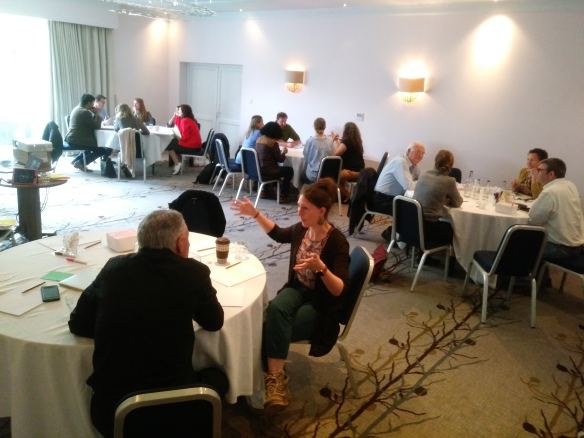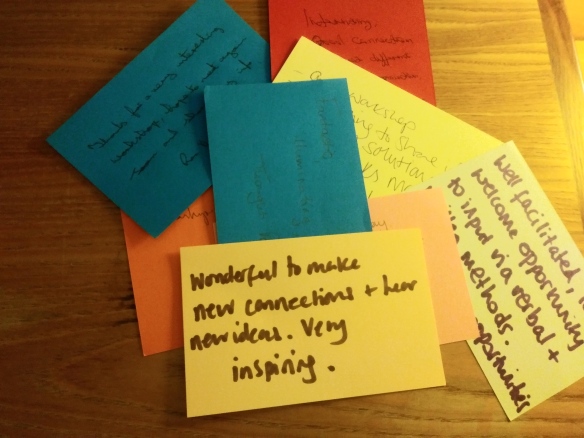Scientists at the BioAirNet project were exploring the idea of producing a position statement on biological particulate matter as a component of healthy air.
“As a team we were agreed about the benefits of writing such a position paper but we were conscious of the dangers of being an echo chamber and before we developed it further we wanted to invite others from the global community to comment on the idea”
Professor Sean Tyrrel, Cranfield University, Co-Investigator BioAirNet
Co-Designing a Process
At this point the team engaged the services of Christine Bell, an independent facilitator at Centre for Facilitation, to co-design how they might approach this engagement.
The process needed to be:
- Short – the target group would be senior scientists, researchers and policymakers who would be time poor.
- Virtual – participants would be invited to join the session from around the world.
- Secure – it was important to create an environment where people felt safe to share their opinions without the risk of being shouted down by others or having their opinions shared beyond the session.
The facilitator proposed a simple dialogue method and mapped out and developed the process with the team using a digital planning tool. The process included a short piece of preparation activity focused on reading and reacting to the position paper using a simple digital whiteboard (Google Jamboard)
“It was great to see that colleagues choose to engage with the Jamboard and this helped to deepen the conversation during the virtual session where time is at a premium”
Professor Sean Tyrrel
The Thought Experiment Session
The virtual session, termed the Thought Experiment, lasted two hours and featured Professor Tyrrel as project leader, so he could set the context and address any technical questions. The session was recorded, and a viewing session set up for the rest of the team for later in the day.
“Having a facilitator moderating the session was invaluable because it meant I could focus on listening to the comments without needing to respond or steer the conversation. Having developed the process with Christine, she knew what we needed from the conversation and made sure that the conversation was inclusive”
Professor Sean Tyrrel
The experts attending this event appreciated the professional facilitation and how this supported them to contribute and build on ideas thoughtfully and in a structured manner.
“A tremendously useful meeting. Good progress was made to understand the different perspectives we all have – and most importantly – how to move ahead”
Gareth wYN GRIFFITH – Chair in Mycology, Aberystwyth University
Results
As a result of the Thought Experiment, the team spent time discussing the issues raised. The experiment threw up mostly predictable challenges, BUT the team were struck by the intensity in the discussion at times.
“The fact that the BioAirNet team was not steering the discussion was invaluable”
Professor Sean Tyrrel.
The participants gave more focus on outputs and next steps than had been originally planned, and this helped to shape the BioAirNet team’s response. The team recognised that what was important to them was the establishment of a shared consensus in the network that most felt able to support.





